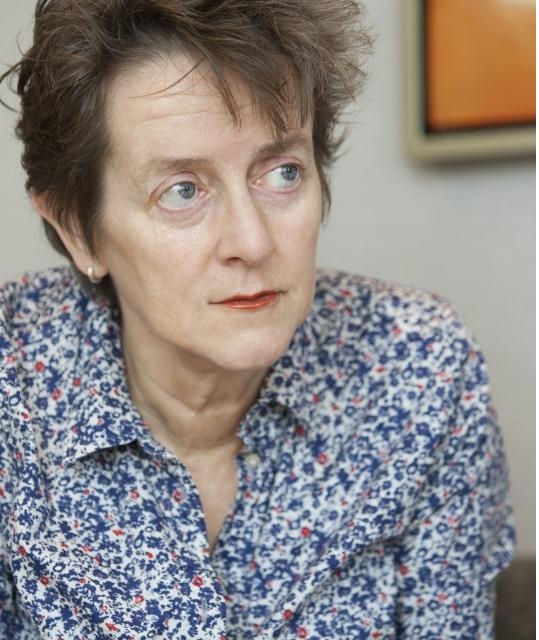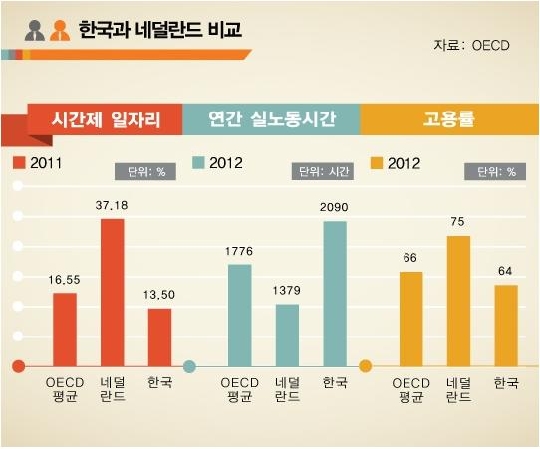Interview with a reporter devoted to issues in Northeast Asia at Trouw, the Netherlands daily newspaper

Sybilla Claus wondered why Korean women feel stressed because of marriage and child care. And then she went on to ask series of questions like, “Does young people still use the word 'Ansaram'?” or “What are the policies for single mom?” By the time the interview was finished, she seemed to have found answers to those questions. Some of these issues in Korea deemed very unique for a reporter covering policies for women in Northeast Asia.
The main topic of the interview with Sybilla Claus was ‘women.’ Before the interview, she said that a lack of social support for women to achieve a balance between work and family may be the main reason that women in Korea are distressed with marriage.
In her eyes, the current administration’s policies for women seemed somewhat half-baked. She said, “I recently met young female undergraduates, they were all worried about a married life and child care that follows. I was really surprized because in the Netherlands, people in their early 20’s never think of such issues, they just enjoy their life. That's possible because they are not big problems."
Also, she pointed out that a lack of support for working mothers is one of major reasons that Korea has the lowest fertility rate among its OECD counterparts. In the Netherlands, anyone with a child is granted with social security benefit, be it a single or a lesbian. This has been possible because of the public consensus built upon a social welfare system that caters to the needs of people from the cradle to the grave.
As for hourly and part time jobs, she commented, “The problem is 'Who would want to work less than others? Actually, there are more female part timers than their male counterparts in the Netherlands, too. Husbands make more money than wives, while wives choose to work for only three days a week so that she can spend more time with their children.”
In the Netherlands, part-time employees can make a request for a transition to full-time employment after one year. This is applicable to most jobs. The system enabled Claus to work a four-day week.
People build up negative perspectives on part-time jobs due to low wage and instability. Claus argued, “In my country, a part-time job itself is not a big problem, but a good policy is. And it is very important to ensure the quality of part-time jobs. It would be inappropriate to have part-timers stuck in low-pay jobs."

A survey on women’s career discontinuity, conducted by the Korea Employment Information Service last year, suggests that as many as 35.8% of women said an ideal wage for a part-time job is KRW 1.5-2M on an annual basis. However, in reality, part-timers receive 63.3% of what regular workers receive. Claus added, “Part-time jobs should be able to guarantee a decent level of living and financial independence.”
Claus highlighted the importance of proactive policies for single mothers. She insisted that any stigma attached to single mothers and a shortage of policies for them end up inducing them to give up their babies. This is associated with the ‘burden of child care’ a woman faces when she gets divorced. Claus stressed, “Korea should pull together to end stigma of adoption. Back in my country, anyone with a child receives more social security benefits and subsidies than those without. This frees people from having a burden of raising a child. Those subsidies are tax payers’ money, indeed our money. This is a kind of benefit provided by the society as a whole, not limited to the government.”
Back in the 1980s, the “Dutch disease” implied high unemployment. In 1982, under the Wassenaar Agreement, the government, labor, and management agreed to expand protective measures for part-timers. Later in 1993, labor and management made an agreement to provide the same wage and pay for both part-time and full-time employees, pushing employment rate to around 70%. The Netherlands’ case has great implications for Korea; a complete set of measures based on the public consensus is the key.
Sybilla Claus : PhD Degree in journalism at Erasmus University. Since 1997, she has covered women in Africa. She received journalism awards in the Netherlands for articles such as ‘The relationship, sex, and work in modern day Japan(2012),’ ‘Who is the newly emerging middle-class in China; a self-portrait resulting from growth(2013),’ and ‘Private lives of Chinese or changes in moral behavior in China(2013).’ She currently lives in Amsterdam.

